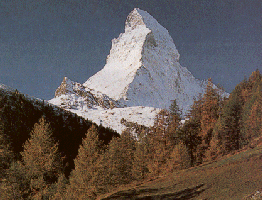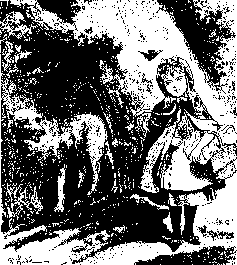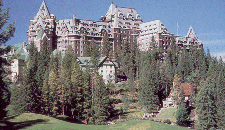'Lesson Eight'

'Lesson Eight'

|
|

'Now it is time to learn a few endings of grammar and then you will be able to read selections in Transitional English. You already know the prefixes and suffixes of verbs: the ending --ed, and the prefix: wil--. In addition to these there is the CONDITIONAL TENSE expressed by the prefix wud--.'
If ay wud-bï rich, ay wud-bï kòntént. (If I would be rich, I would be content.)
' .' (this describes a situation which is contrary to fact, because the individual is not rich.')
'The IMPERATIVE (command) is indicated simply by the infinitive of the verb. In writing it is followed by an exclamation point, while in speech by the demanding sound of the voice.'
Yü not gow tu müvi! Stey howm!
(You not go to movie! Stay home!)
' !'
'Finally, we have the present participles
or gerunds.  .
A present participle is a verb form that ends in -ing, and serves
as a verbal adjective. When the --ing form serves as a noun, it
is called a gerund. (These words which are derived from verbs can serve
as verbs, but also as adjectives, adverbs, or nouns.)'
.
A present participle is a verb form that ends in -ing, and serves
as a verbal adjective. When the --ing form serves as a noun, it
is called a gerund. (These words which are derived from verbs can serve
as verbs, but also as adjectives, adverbs, or nouns.)'
'Examples':
'SELF is a reflexive singular pronoun, SELFS is the plural form.' 'The reflexive pronoun refers back to the subject of the verb.'
| aysélf ' ' | wïsélfs ' ' |
| yüsélf ' ' | yüsélfs ' ' |
| hïsélf ' ' | dheysélfs ' ' |
| shïsélf ' ' | dheysélfs ' ' |
| itsélf ' ' | dheysélfs ' ' |
'EXAMPLES':

òdhèr (other), pron. ' '
àgow (ago), adv. ' '
anòdhèr (another), pron. ' '
àwéy (away), adv. ' '
äy (eye), n. ' '
bùtèr (butter), n. ' '
bad (bad), adj. ' '
baskìt (basket), n. ' '
big (big), adj. ' '
brayt (bright), adj. ' '
cheynj (change), v. ' '
jùmp (jump), v. ' '
dark (dark), adj. ' '
difèrènt (different), adj. ' '
dör (door), n. ' '
aks (axe), n. ' '
end (end), n. ' '
ansèr (answer), v. ' '
ferï (fairy), n. ' '
fil (fill), v. ' '
forèst (forest), n. ' '
gärdèn (garden), n. ' '
gow àwéy (go away), fr. ' '
grandmòdhèr (grandmother), n. '
'
hag (hug), v. ' '
hònï (honey), n. ' '
haws (house), n. ' '
helth (health), n. ' '
ham (ham), n. ' '
hapï (happy), adj. ' '
hat (hat), n. ' '
hud (hood), n. ' '
hùrï (hurry), v. ' '
ïvìl (evil), adj. ' '
kòmplïtli (completely), adv. ' '
kòndíshòn (condition), n.
' '
kach (catch), v. ' '
klawd (cloud), n. ' '
klièr (clear), adj. ' '
köl (call), v. ' '
kowt (coat), n. ' '
kray (cry), v. ' '
kukï (cookie), n. ' '
layt (light), n. ' '
leyter (later), prep. ' '
litèl (little), adj. ' '
Litèl Red Rayding Hud (Little Red Riding
Hood), p.p. ' '
mawth (mouth), n. ' '
nok (knock), v. ' '
nayt-gawn (night gown), n. ' '
nekst (next), adj. ' '
nevèr (never), adv. ' '
nowz (nose), n. ' '
owkéy (okay), adv. ' '
örfàn (orphan), n. ' '
òríjìnàl (original),
adj. ' '
part (part), v. ' '
pïpèl (people), n. ' '
pritï (pretty), adj. ' '
put (put), v. ' '
ran (run), v. ' '
rïzòn (reason), n. ' '
sùch (such), adv. ' '
sùdènli (suddenly), adv. ' '
sùn (sun), n. ' '
sayd (side), n. ' '
sel (sell), v. ' '
self (self), pron. ' '
seyfli (safely), adv. ' '
shört-kùt (short cut), n. ' '
sik (sick), adj. ' '
skay (sky), n. ' '
smel (smell), v. ' '
start of (start off), fr. ' '
störï (story), n. ' '
streynjèr (stranger), n. ' '
swït-hart (sweetheart), n. ' '
taym (time), n. ' '
think (think), v. ' '
thrü (through), prep. ' '
vejètàbèl (vegetable), n.
' '
voys (voice), n. ' '
vèrshòn (version), n. ' '
weàr (wear), v. ' '
wey (way), n. ' '
wikèd (wicked), adj. ' '
wispèr (whisper), v. ' '
wök (walk), v. ' '
wòrd (word), n. ' '
wud (wood), n. ' '
wüdsman (woodsman), n. ' '
wulf (wolf), n. ' '

Hièr bï anòdhèr ferï störï, teled in òdhèr wòrds-- wòrds dhat bï öltògédhèr difèrènt from òríjìnàl vèrshòn.
Long taym àgow, dher bïed litèl gìrl dhat lived with ov-shï mòdhèr in litèl haws on ej ov dark forèst. Dhis litèl gìrl örfàn weàred litèl red kowt with litèl red hat, and for dhis rïzòn pïpèl köled shï "Litèl Red Rayding Hud." Wòn mörning mòdhèr ov Litèl Red Rayding Hud köled shï and seyed:
"Litèl Red Rayding Hud, hièr bï litèl baskìt with sam bred and bùtèr and shugàr kukïs. Teyk dhis litèl baskìt tu haws ov grandmòdhèr, dhat liv an òdhèr sayd ov forèst. Hùrï, not stop in forèst, and ùndèr no kòndíshòns stop tök with streynjèrs!"
"Owkéy, mòdhèr," ansèred Litèl Red Rayding Hud, and teyked litèl baskìt and started of.
On ov-shï wey tu haws  ov grandmòdhèr, Litèl Red Rayding Hud mïted big,
bad wulf.
ov grandmòdhèr, Litèl Red Rayding Hud mïted big,
bad wulf.
"Wel, wel, wel," seyed bad wulf. "If it not bï Litèl Red Rayding Hud! Weèr gow pritï litèl gìrl with litèl baskìt?"
"Ay gow tu ov-ay grandmòdhèr," ansèred litèl gìrl. "Grandmòdhèr bï sik in bed. Ay teyk tu shï sòm bred, bùtèr and shugàr kukïs."
"Ohó, hav gud wök," seyed bad wulf, bùt hi thinked tu self, "Ay wil-teyk shört-kùt tu haws ov grandmòdhèr. Ay wil-kach ùp with shï leyter, and dhen -- oh boy!"
Sow wikèd wulf teyked shört-kùt, and wen hi rïched haws ov grandmòdhèr, hi pïked in ov-shï window and sïed dhat puòr grandmòdhèr leyed in ov-shï bed. In flash, dhis bad wulf lïped on ov-shï bed and ïted shï. Dhen hi puted on nayt-kap ov grandmòdhèr and ov-shï nayt-gawn, and kùrled ùp in ov-shï bed. In litèl wayl, Litèl Red Rayding Hud àráyved at haws and ringed dör bel. "Kòm in, swït-hart," seyed wikèd wulf disgáyzing ov-hï voys. Litèl Red Rayding Hud gowed in and standed bay bed ov grandmòdhèr.
"Oh, Grandmòdhèr," krayed litèl gìrl, "wàt big ays yü hav! Ay nevèr sïed sùch big ays."
"Gudèr sï yü with, hònï," wispèred dhis bad wulf, with ïvìl smayl.
"Oh, Grandmòdhèr, wàt big nowz yü hav. Ay nevèr sïed sùch big nowz!"
"Gudèr smel yü with, hònï," seyed wulf.
"Oh, Grandmòdhèr, wàt big mawth yü hav! Ay nevèr sïed sùch big mawth!"
"Gudèr tu_ït yü with!" At dhat, wulf jùmped awt ov bed and bïed àbáwt tu_ït Litèl Red Rayding Hud, layk hi ïted grandmòdhèr, wen sòm wüdsmans niàr dheèr, hiàred ov-shï kray for help. Dhey hùrïed in, and with kùts ov-dhey akses, kùt wulf owpèn. Awt kòmed grandmòdhèr, in gud helth and sùrpráyzed at ov-shï löng slïp.
Wen shï weyked ùp, grey klawds in skay parted, and sùn shayned àgén, klièr and brayt, filing rüm with ov-it [its] yelow layt.
Litèl Red Rayding Hud rùned tu_hùg ov-shï grandmòdhèr. Dhey asked wüdsmans tu_ït with dhey. Grandmòdhèr haved sòm ham, and sòm vejètàbèls from gärdèn. With bred and bùtèr and shugàr kukïs in Litèl Red Rayding Hud's baskìt, dhey haved gud mïl. Aftèr dhey ïted, wüdsmans gowed àwéy hapï, with big wulf's skin tu_sel.
Nekst taym Litèl Red Rayding Hud gowed tu ov-shï grandmòdhèr's haws, shï not stoped in forèst tu_tök with streynjèrs, bùt hùrïed seyfli thrü forèst.
'Answer the questions'.
| Click here for the Transitional English to Standard English and 'Your language' vocabulary. ('Translate the preceding sentence into your language'.) | Click here for the Standard English to Transitional English and 'Your language' vocabulary. ('Translate the preceding sentence into your language.') | Click here for 'Your language' to Transitional English and Standard English vocabulary. ('Translate the preceding sentence into your language'.) |
|---|---|---|
| Click here for Langenscheidt's 'Your language'-English English-'Your language' on-line dictionary. ('Translate the preceding sentence into your language.') | ||
